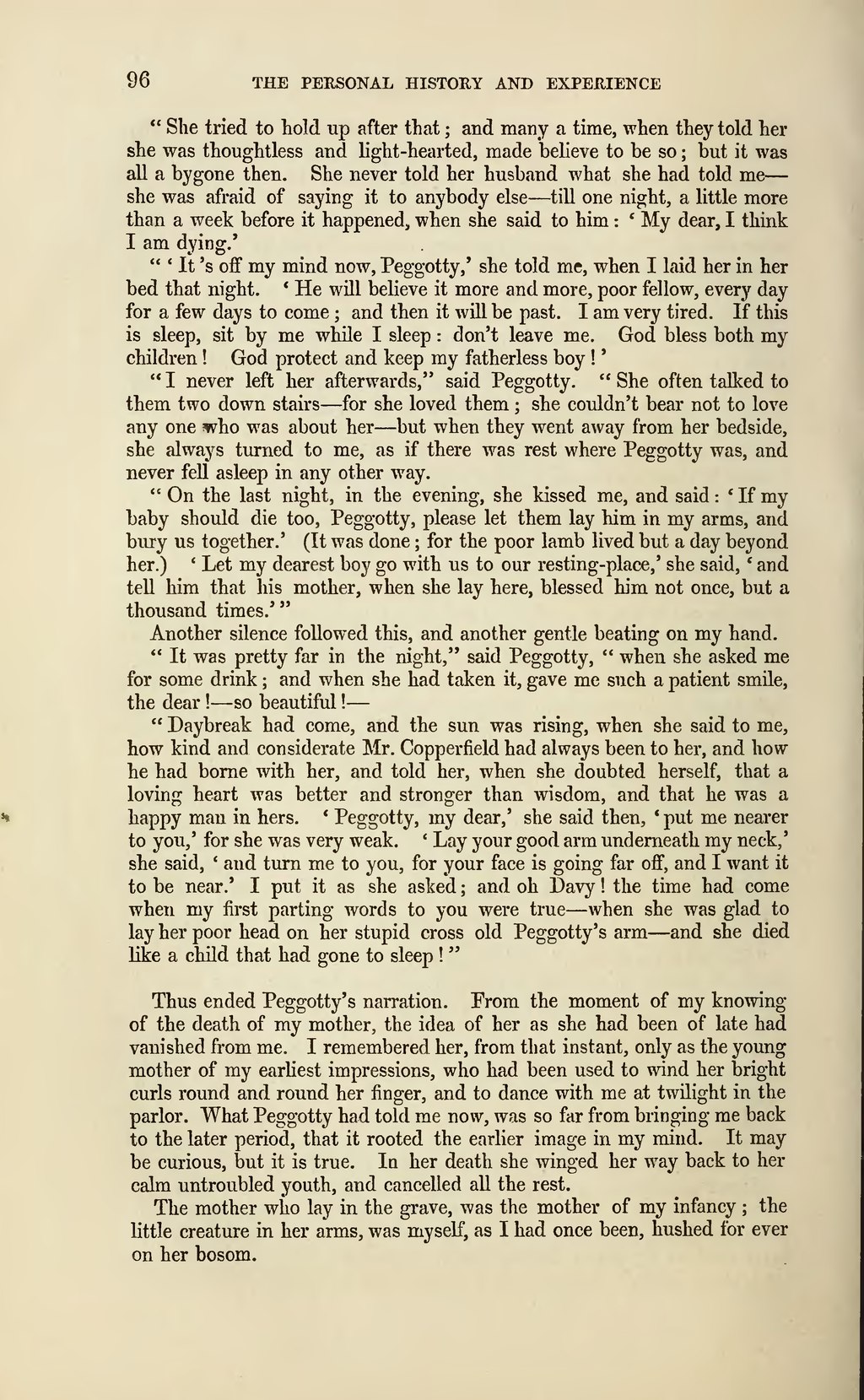"She tried to hold up after that; and many a time, when they told her she was thoughtless and light-hearted, made believe to be so; but it was all a bygone then. She never told her husband what she had told me—she was afraid of saying it to anybody else—till one night, a little more than a week before it happened, when she said to him: 'My dear, I think I am dying.'
"'It's off my mind now, Peggotty,' she told me, when I laid her in her bed that night. 'He will believe it more and more, poor fellow, every day for a few days to come; and then it will be past. I am very tired. If this is sleep, sit by me while I sleep: don't leave me. God bless both my children! God protect and keep my fatherless boy!'
"I never left her afterwards," said Peggotty. "She often talked to them two down stairs—for she loved them; she couldn't bear not to love any one who was about her—but when they went away from her bedside, she always turned to me, as if there was rest where Peggotty was, and never fell asleep in any other way.
"On the last night, in the evening, she kissed me, and said: 'If my baby should die too, Peggotty, please let them lay him in my arms, and bury us together.' (It was done; for the poor lamb lived but a day beyond her.) 'Let my dearest boy go with us to our resting-place,' she said, 'and tell him that his mother, when she lay here, blessed him not once, but a thousand times.'"
Another silence followed this, and another gentle beating on my hand.
"It was pretty far in the night," said Peggotty, "when she asked me for some drink; and when she had taken it, gave me such a patient smile, the dear!—so beautiful!—
"Daybreak had come, and the sun was rising, when she said to me, how kind and considerate Mr. Copperfield had always been to her, and how he had borne with her, and told her, when she doubted herself, that a loving heart was better and stronger than wisdom, and that he was a happy man in hers. 'Peggotty, my dear,' she said then, 'put me nearer to you,' for she was very weak. 'Lay your good arm underneath my neck,' she said, 'and turn me to you, for your face is going far off, and I want it to be near.' I put it as she asked; and oh Davy! the time had come when my first parting words to you were true—when she was glad to lay her poor head on her stupid cross old Peggotty's arm—and she died like a child that had gone to sleep!"
Thus ended Peggotty's narration. From the moment of my knowing of the death of my mother, the idea of her as she had been of late had vanished from me. I remembered her, from that instant, only as the young mother of my earliest impressions, who had been used to wind her bright curls round and round her finger, and to dance with me at twilight in the parlor. What Peggotty had told me now, was so far from bringing me back to the later period, that it rooted the earlier image in my mind. It may be curious, but it is true. In her death she winged her way back to her calm untroubled youth, and cancelled all the rest.
The mother who lay in the grave, was the mother of my infancy; the little creature in her arms, was myself, as I had once been, hushed for ever on her bosom.
